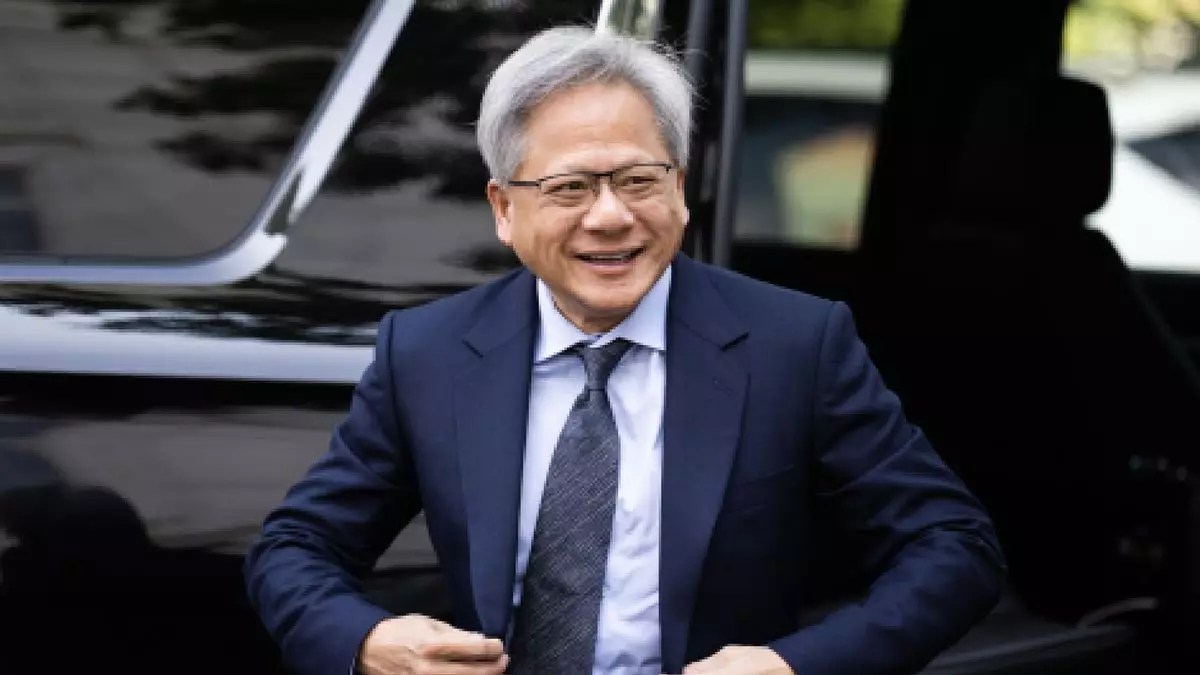In a fascinating glimpse into the early life of Jen-Hsun Huang, the co-founder and CEO of Nvidia, we learn that his journey began not in the realm of technology, but on the table tennis court. A striking letter unearthed from the archives of Sports Illustrated reveals that, back in 1978, Huang was heralded as an exceptionally talented junior player in the sport. Lou Bochenski, the owner of Paddle Palace, a prominent table-tennis club in the Northwest, wrote an enthusiastic recommendation, suggesting that Huang was a name to watch in the sport. This intriguing narrative does not merely highlight Huang’s athletic prowess but offers a deeper insight into his character—marked by dedication, discipline, and an insatiable hunger for success.
Though Huang’s table tennis career was short-lived, the echoes of his youthful ambition continue to resonate today. Bochenski’s heartfelt letter emphasized not just Huang’s potential in the sport but also his work ethic. The anecdote about Huang scrubbing floors at the Paddle Palace to fund his passion for table tennis serves as a testament to his tenacity and determination. This early manifestation of discipline would later become traits synonymous with Huang as he transitioned into the tech world.
As the years progressed, Huang’s path diverged significantly from that of a competitive table tennis player to that of a technology visionary. The recent publication “The Nvidia Way: Jensen Huang and the Making of a Tech Giant” by Tae Kim delves into this transformative journey. From humble beginnings working at Denny’s to presiding over a multi-trillion dollar company, Huang’s trajectory is a compelling narrative of ambition and ingenuity.
Kim’s book provides a detailed look at Nvidia’s evolution, revealing the inner workings of a corporation that has become synonymous with cutting-edge technology. Readers are treated to a wealth of insights, including Huang’s own musings on business, the graphics card industry, and his humorous reflections on life, from toilet-cleaning anecdotes to deeper philosophical considerations on the future of artificial intelligence. This juxtaposition of an unassuming young man with big dreams and a formidable tech leader offers readers a multifaceted portrait of Huang’s life journey.
Moreover, there’s a poignant element to Huang’s story: the juxtaposition between his dream of becoming a table tennis champion and the reality of his monumental success in technology. One has to wonder about the potential paths not taken—would Huang have flourished as a professional athlete had life taken a different turn? The phrase “very hungry to become a table-tennis champion” is powerful, suggesting a level of passion that is elite in any field.
Yet today, it seems that Huang has carved his name into the annals of technological advancement, leading Nvidia into a future that spans artificial intelligence and gaming technologies. One might even speculate whether Huang sees any remnants of his table tennis aspirations in his leadership style—strategic, methodical, and deeply competitive.
The question arises: is Huang’s journey from table tennis prodigy to tech tycoon indicative of a squashed dream, or is it a beautifully diverted ambition leading to unprecedented success? While it might have been impressive to witness his prowess in competitive play, his contributions to technology will have a far-reaching impact on society. One cannot deny the irony that the same characteristics that could have made him a table tennis champion—the commitment, the ability to strategize, and an unwavering pursuit of excellence—are precisely what propelled him in the world of tech innovation.
With Nvidia now at the forefront of AI development and graphics technology, it is clear that Huang’s passions may have been redirected, but they never diminished. Ultimately, this exploration of Jen-Hsun Huang’s early life serves not just as a nostalgic look back at an unfulfilled sporting ambition but also as a rich narrative of how diverse paths can converge to create monumental success in entirely different arenas. Whether he reflects on lost dreams or realized potential, Huang’s legacy in both sports and technology serves as an inspiring blueprint for future generations seeking to carve their own paths.


Leave a Reply